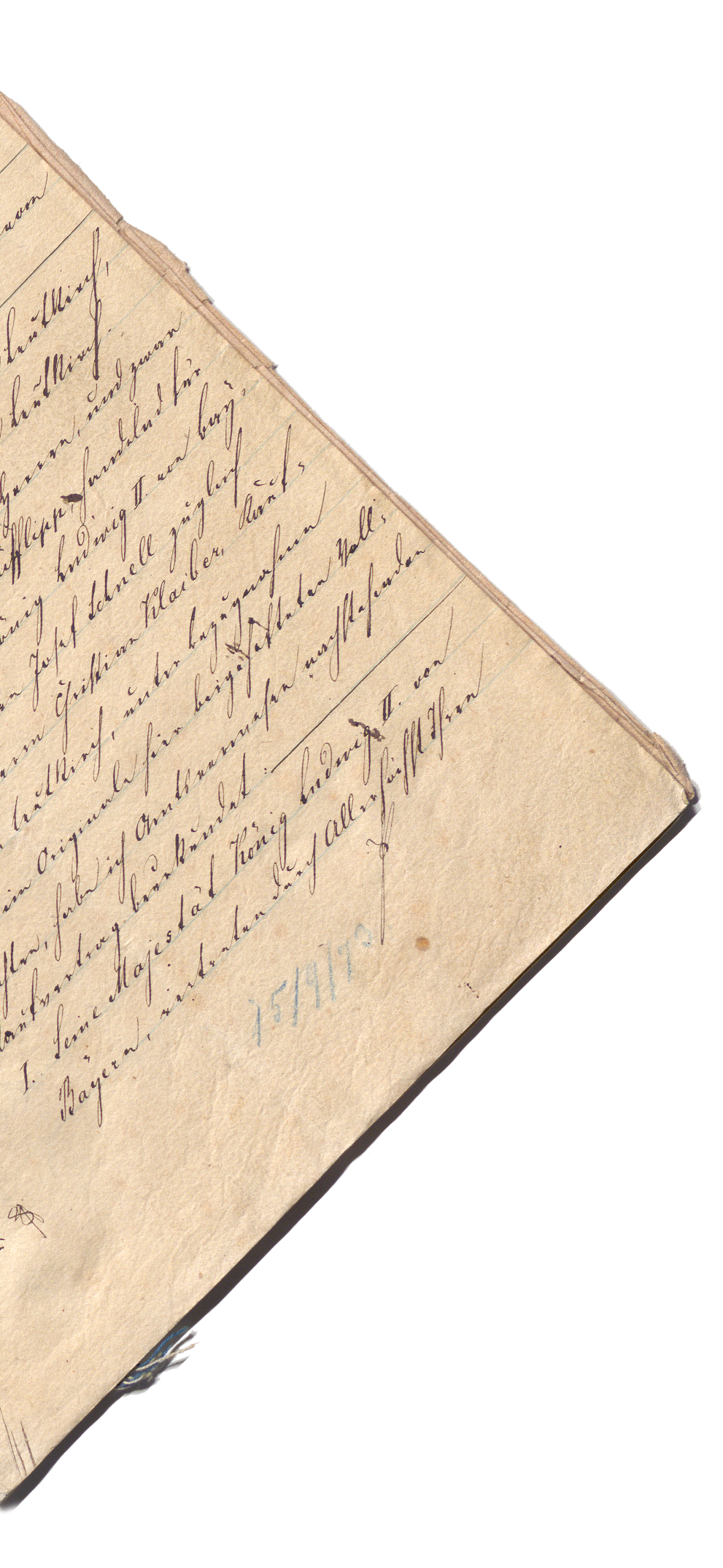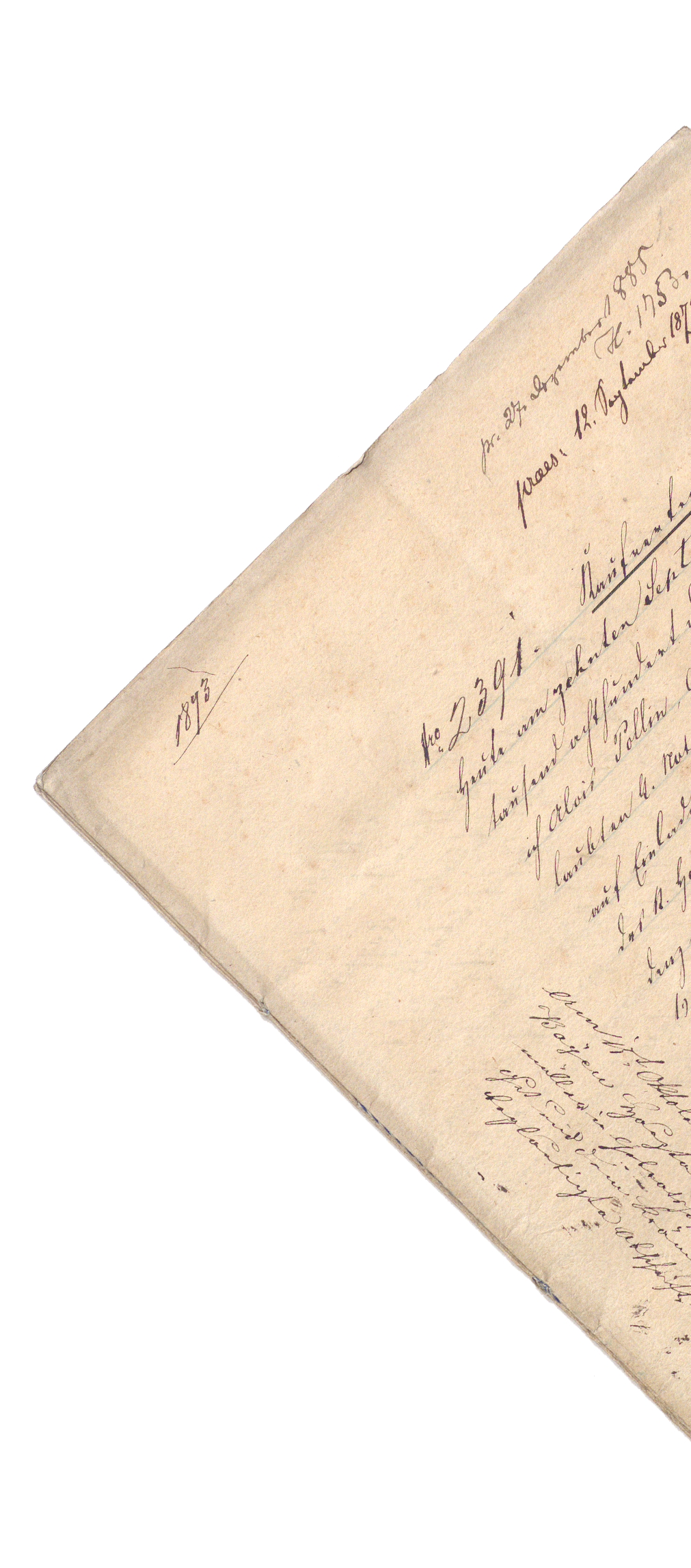
1940 - Will of the great diplomat Nicolae Titulescu
Nicolae Titulescu’s will was authenticated by the Romanian Embassy in Paris, under number 27 of 04.03.1940. The certified copy of the original was registered with the Sector 1 Financial Administration under number 56/1946 and is part of the file containing the succession of the deceased Nicolae Titulescu.
Nicolae Titulescu (born on 4 March 1882 in Craiova, Romania – died on 17 March 1941 in Cannes, France) was a Romanian diplomat, legal professional, teacher and politician, Minister of Foreign Affairs for several terms, minister plenipotentiary and full member of the Romanian Academy.
In 1921, he was appointed Permanent Delegate of Romania to the League of Nations of Geneva, being elected twice as President of this international organisation (in 1930 and 1931). He was active in consolidating international cooperation, promoting European peace and security. Following this political line, Nicolae Titulescu signed in 1933, in London, on behalf of the Romanian government, the Convention for the Definition of Aggression and made remarkable efforts for the conclusion in 1920-1921 of the Little Entente and, between 1933-1934, the Balkan Pact (regional pacts against aggression by certain States).
On 29 August 1936, King Charles II of Romania, by yielding to pressure from the government and his Germanophile entourage, but also from outside, removed him from his official duties and forced him into exile. He lived in Switzerland and then in France and died in Cannes on 17 March 1941. In 1992, his remains were repatriated to Romania and buried in the courtyard of St. Nicholas Church, at Şcheii Braşovului, at the end of a difficult legal procedure, led by Mr Jean-Paul Carteron, the founder of the Crans Montana Forum.
Uniunea Naţională a Notarilor Publici din Romania.
1952 / 1954 - A page of the index of the Register of Wills was drawn up at the notariat of the State of the Romanian People’s Republic and the Region of Bucharest
In the chapter “Final and transitional provisions” (Articles 110-111) of Law No. 358 of 3 July 1944 on the authentication and legalisation of documents, giving a clear date to documents and legalisation of copies of documents, it is provided for the creation at Ilfov Court – Notarial Section, of the Register of authentic and secret wills of the whole country, a register unique in the world at that time.
From that year onwards, all notarial sections that operated within the framework of the authorities and notaries who gave authentic form to wills and declarations that revoked or amended wills, as well as the authorities that kept secret wills, were required to communicate reports on these documents to the Ilfov Tribunal – Notarial Section, within a maximum of 10 days from the date on which they issued or authenticated this type of testamentary disposition. The reports contained general information: surname, first name of the testator or declarant, the authentic or secret nature of the will, the date and number under which they were authenticated or registered with the authorities or the notary. The notary or the authority that, for a certain period, had not authenticated or had not issued a testamentary disposition, was obliged to complete the report anyway within the prescribed time limit.
For registration, a general index and an index in alphabetical order were requested and completed daily, under the direct supervision of the first clerk, who also kept the reports.
The index was confidential with regard to secret wills, information or certificates could not be offered unless the death of the testator was proven.
Decree no. 53/1953 provides for the creation of the register of authentic and secret wills of the whole country at the Main Office of the State Notariat of the Capital of the Romanian People’s Republic and the Bucharest Region. The registers were transferred to the Main Office of the State Notariat.
Given the new competence in inheritance, the register had the role of ensuring the efficiency of the notarial system and at the same time reducing the possibility of error in the event of a testate succession. At the end of each month, the regional offices of the State notariat were obliged to communicate to the main office of the state notariat of the capital of the Romanian People’s Republic and the Bucharest Region the total number of authentic wills and authentic declarations, by which wills, deposited in their central archives, were amended or revoked during the respective month.
The Register of Wills was abolished for a short period of time because it was not perceived as useful or necessary. Its usefulness was really understood after 50 years, when the digitalised form of the register was created.
Uniunea Naţională a Notarilor Publici din Romania.
1988 - Ana Aslan’s Certificate of Succession and the first page of the succession inventory
Ana Aslan-Vasilichia (born on 1 Javier 1897, in Brăila – died on 20 May 1988, in Bucharest) is one of the greatest female personalities in the history of Romania. She was a doctor, specialising in gerontology, an academician from 1974 and Director of the National Institute of Geriatrics and Gerontology (1958-1988). Her research demonstrated the importance of procaine in improving age-related dystrophic dysfunctions by applying the results of her research in the Gerovital Geriatric Clinic. Many internationally renowned personalities have followed the Gerovital treatment: Charles de Gaulle, J.F. Kennedy, Iosip Broz Tito, Indira Gandhi, Imelda Marcos, Marlene Dietrich, Konrad Adenauer, Charlie Chaplin, Kirk Douglas, Salvador Dali. Ana Aslan invented (in collaboration with pharmacist Elena Polovrăgeanu) the geriatric product Aslavital, patented and introduced into industrial production in 1980.
A member of the New York Academy of Sciences, of the World Union of Prophylactic Medicine and Social Hygiene, Honorary Member of the European Centre for Applied Medical Research, Member of the Governing Board of the International Association of Gerontology, Member of the National Society of Gerontology of Chile, Ana Aslan received numerous international awards: the International Prize and the “Leon Bernard” Prize, awarded by the World Health Organization (1952), Merito della Republica – Italy, Knight of the Order of Academic Palms – France, Professor Honoris Causa and Doctor emeritus of the Bragança Paulista University of Brazil.
Ana Aslan-Vasilichia died on 20 May 1988 at the age of 91, with no legal heirs or wills. In accordance with Certificate of Succession No. 1716/1988 dated 22 December 1988, issued by the State Notariat of Sector 1, Bucharest, (Succession File No. 878/1988), the entire estate was transferred to the Romanian State.
Uniunea Naţională a Notarilor Publici din Romania.


